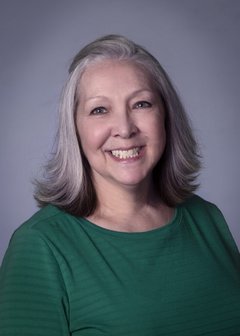OSF Saint Anthony’s Health Center continues its focused efforts expanding resources in addressing the mental health and well-being of residents in the Riverbend region.
Marla G. Nelson, licensed clinical professional counselor (LCPC), psychotherapist, is the newest addition to Psychological Services department roster at OSF Saint Anthony’s. Ms. Nelson has more than 13 years of providing and managing individual, family, couples and group therapy, as well as crisis counseling throughout the metro east and Riverbend region.
Nelson sees patients for general mental health needs which include:
- Depression
- Anxiety
- Trauma (using various therapeutic interventions)
“It’s not a one size fits all approach. I’m very person-centered. I have a special interest in providing services to those who struggle with substance use disorder (SUD) along with their loved ones,” Nelson states. In fact, Marla is planning on starting a group for Friends and Families in early 2025 at OSF St. Anthony’s. “My preference is a risk reduction approach for SUD where I partner with the patient to develop a treatment plan that will fit their needs.”
Specifically speaking, Nelson counsels patients who are using Medications for Addiction Treatment (MAT). As the name implies, medications are an element of MAT methods—but they aren’t the only component of such treatment. Instead, MAT combines pharmacological treatment (medications) with behavioral treatment that is tailored to a patient’s unique needs. “Many people have been helped in recovery through this whole-patient-focused approach. MAT may effectively minimize cravings, block some of the rewarding properties of certain substances, and ultimately decrease drinking and continued substance use behavior,” Nelson says.
The goal of MAT is full recovery; however, MAT may also:
- Increase patient survival rates
- Increase treatment retention rates
- Decrease criminal activity related to opioid use and other drug use
- Increase patients’ abilities to gain or maintain employment
Nelson continues by saying “MAT is a comprehensive approach to treatment; in its various phases, it incorporates strategies to address several components in an individual’s life, including vocational issues, medical and mental health concerns, family issues, and legal concerns through monitoring, support, screening, referrals, and counseling.”
According to American Addiction Centers, MAT was originally designed to treat opioid use disorder (OUD) in the 1960s when methadone maintenance was developed as one of the key forms of treatment for this problem. Federally funded treatment programs emerged in the 1970s; the term “maintenance treatment” (referring to medication-assisted treatment) was first used in the Narcotic Addict Treatment Act of 1974.
In the 1990s, the National Institutes of Health published important recommendations clarifying that opioid addiction was not due to a lack of willpower or a moral failing, but a treatable disorder. This helped further promote the concept of addiction as a medical condition, widened the search for and adoption of MAT options, and may have also helped to reduce some of the stigmas associated with MAT. Soon, other treatments and medications developed, and MAT became more widely used. Finally, accreditation systems for opioid treatment programs (OTPs) helped standardize treatment methods in MAT and ensure high-quality MAT services across the United States.
According to the 2021 National Survey on Drug Use and Health and the National Survey of Substance Abuse Treatment Services:
- 29.5 million people aged 12 or older had an alcohol use disorder in 2021
- 2.6 million of these people received some sort of treatment for their alcohol use
- Out of these 2.6 million people, 381,000 received MAT for AUD
- 5.6 million people aged 12 or older had an opioid use disorder in 2021
- 1.2 million of these individuals received some sort of treatment for their opioid misuse
- Out of these 1.2 million people, 887,000 or nearly 73% received MAT for their opioid misuse
- 311,531 people received methadone treatment in OTPs in a single-day count in March 2020
- 31,864 people received buprenorphine treatment in OTPs in a single-day count in March 2020
According to the Substance Abuse and Mental Health Services Administration (SAMHSA), MAT has been proven to be effective in clinical studies and has been shown to significantly decrease the need for inpatient detox.
“I focus on opioid treatment since Medicated use for Alcohol Use Disorder doesn’t carry the stigma and misconceptions found in MAR for Opioid Use Disorder. I can relate with anyone who has concerns about essentially using an opioid to treat opioid addiction but after seeing people recover, I can offer some real insight,” Nelson adds.
More information on Medications for Addiction Treatment (MAT) can be obtained by calling the OSF Saint Anthony’s Psychological Services department at (618) 474-6240. Most insurances are accepted including Medicaid and Medicare. Some eligibility and restrictions may apply.

